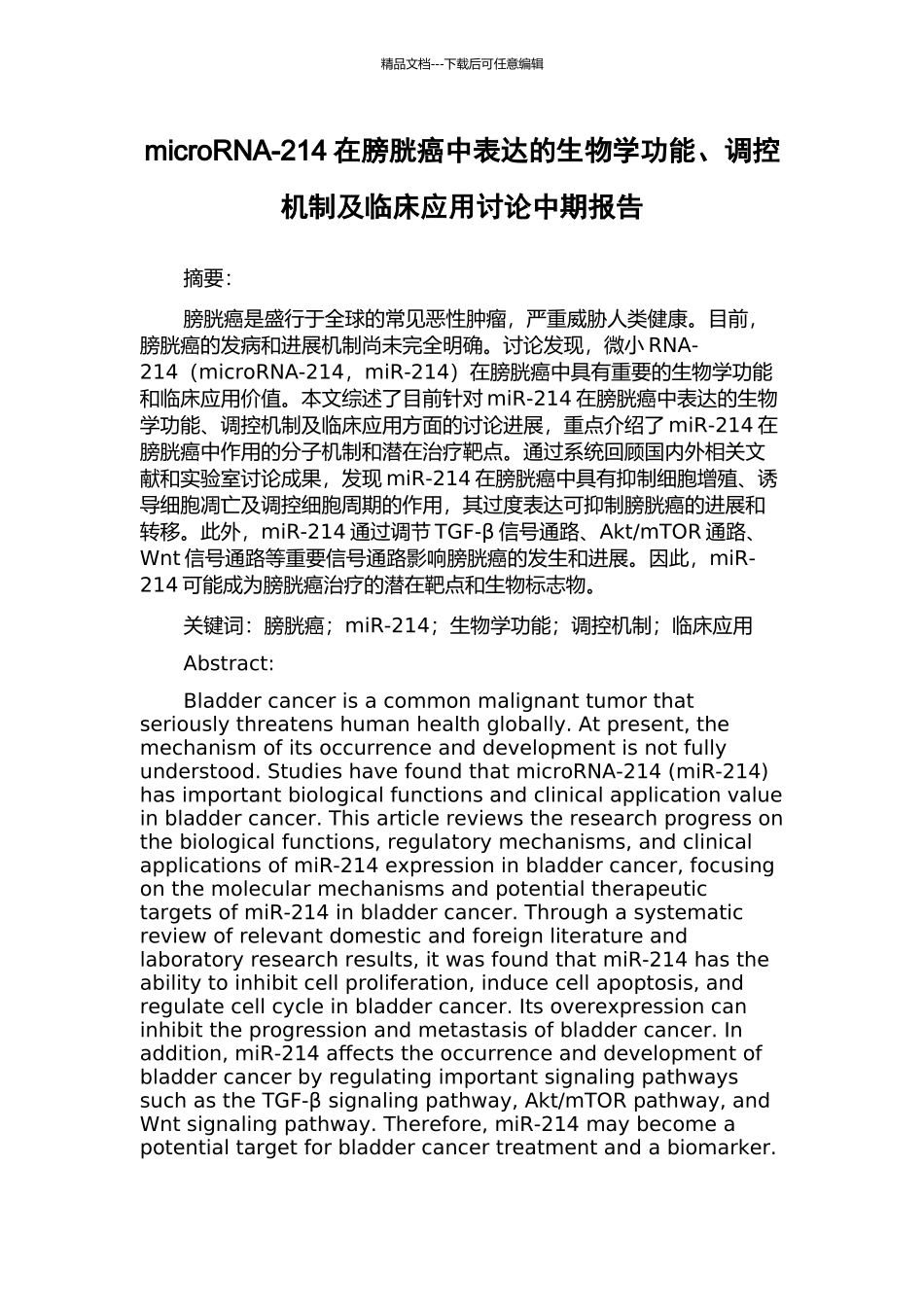精品文档---下载后可任意编辑microRNA-214 在膀胱癌中表达的生物学功能、调控机制及临床应用讨论中期报告摘要:膀胱癌是盛行于全球的常见恶性肿瘤,严重威胁人类健康。目前,膀胱癌的发病和进展机制尚未完全明确。讨论发现,微小 RNA-214(microRNA-214,miR-214)在膀胱癌中具有重要的生物学功能和临床应用价值。本文综述了目前针对 miR-214 在膀胱癌中表达的生物学功能、调控机制及临床应用方面的讨论进展,重点介绍了 miR-214 在膀胱癌中作用的分子机制和潜在治疗靶点。通过系统回顾国内外相关文献和实验室讨论成果,发现 miR-214 在膀胱癌中具有抑制细胞增殖、诱导细胞凋亡及调控细胞周期的作用,其过度表达可抑制膀胱癌的进展和转移。此外,miR-214 通过调节 TGF-β 信号通路、Akt/mTOR 通路、Wnt 信号通路等重要信号通路影响膀胱癌的发生和进展。因此,miR-214 可能成为膀胱癌治疗的潜在靶点和生物标志物。关键词:膀胱癌;miR-214;生物学功能;调控机制;临床应用Abstract:Bladder cancer is a common malignant tumor that seriously threatens human health globally. At present, the mechanism of its occurrence and development is not fully understood. Studies have found that microRNA-214 (miR-214) has important biological functions and clinical application value in bladder cancer. This article reviews the research progress on the biological functions, regulatory mechanisms, and clinical applications of miR-214 expression in bladder cancer, focusing on the molecular mechanisms and potential therapeutic targets of miR-214 in bladder cancer. Through a systematic review of relevant domestic and foreign literature and laboratory research results, it was found that miR-214 has the ability to inhibit cell proliferation, induce cell apoptosis, and regulate cell cycle in bladder cancer. Its overexpression can inhibit the progression and metastasis of bladder cancer. In addition, miR-214 affects the occurrence and development of bladder cancer by regulating important signaling pathways such as the TGF-β signaling pathway, Akt/mTOR pathway, and Wnt signaling pathway. Therefore, miR-214 may become a potential target for bladder cancer treatment and a biomarker.精品文档---下载后可任意编辑Keywords: bladder cancer; miR-214; biological function; regulatory mechanism; clinical application

